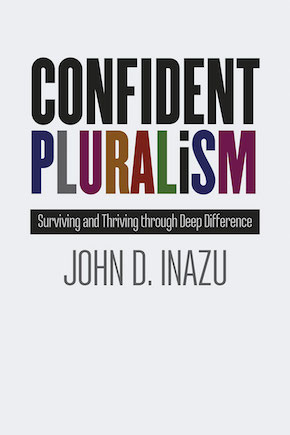John Inazu on Korematsu vs. the United States

John Inazu (author of Confident Pluralism: Surviving and Thriving through Deep Difference) and Karin Tani recently published an op-ed at the Los Angeles Times, “The Japanese American internment decision: A dangerous relic,” on the anniversary of the Korematsu vs. the United States verdict, and the ominous legal precedent it established. A frightening direct quotation from later in the piece: “Last year, Supreme Court Justice Antonin Scalia told law students at the University of Hawaii that ‘of course Korematsu was wrong,’ but ‘you are kidding yourself if you think the same thing will not happen again.'”
***
Friday marks the anniversary of one of the most infamous legal decisions in the history of our country, Korematsu vs. United States.
Seventy-three years ago, during World War II, the United States government forcibly removed 110,000 Japanese Americans from their homes and confined them in detention camps. Loyal citizens lost their property and liberty, based solely on their ancestry. The Korematsu decision validated that action: Relying on a deeply flawed evidentiary record — which included blatant racial animus, hyperbolized threats and misrepresentations by government lawyers — the Supreme Court ruled that the need to protect against the threat of espionage outweighed individual rights.
The federal government has since acknowledged the injustice of Japanese American internment, through reparations, monuments and even a “confession of error” from an acting solicitor general, Neal Katyal, in 2011. As grandchildren of detainees, we can attest to the value of these gestures.
But as law professors, we must acknowledge another truth: The high court has never formally overruled Korematsu, and indeed has declined opportunities to revisit its decision. In law-school-speak, Korematsu remains “good law,” despite widely acknowledged “bad facts.”
We wish we could say that in 2015, Korematsu is a relic—that it survives as a mere technicality and has no real import. But we know better. Our legal system relies heavily on precedent, meaning that even a discredited opinion is a danger if it remains on the books.
To read more from the op-ed, click here.
To read more about Confident Pluralism, click here.